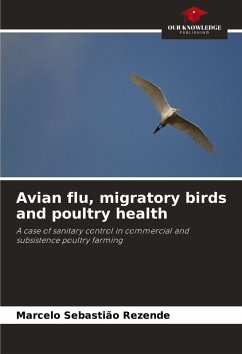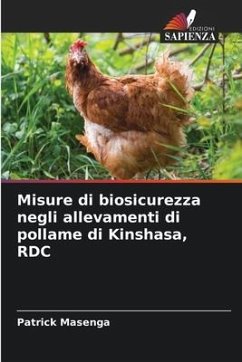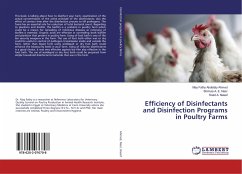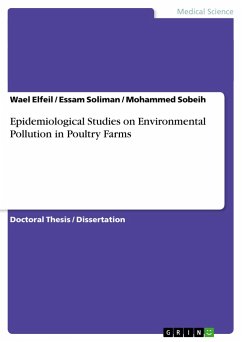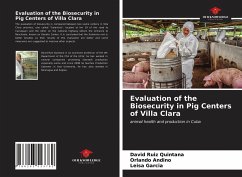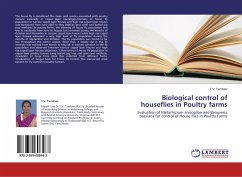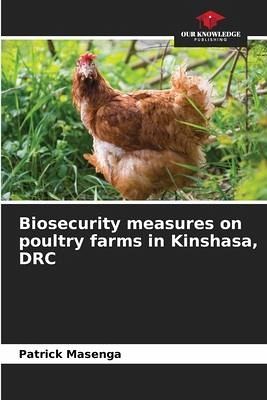
Biosecurity measures on poultry farms in Kinshasa, DRC
Versandkostenfrei!
Versandfertig in 6-10 Tagen
27,99 €
inkl. MwSt.

PAYBACK Punkte
14 °P sammeln!
Biosecurity refers to a set of measures designed to reduce the risk of introduction (bio-exclusion) and spread of pathogenic organisms (bio-containment) in a healthy environment. The importance of implementing a biosecurity program is summed up in the reduction of financial losses due to the outbreak of epidemics, and also helps to control the health status of the farm. A descriptive cross-sectional study was carried out on poultry farms in the city of Kinshasa to assess biosecurity measures. Thirty-four poultry farms were visited and one hundred and two poultry farmers were interviewed. Poult...
Biosecurity refers to a set of measures designed to reduce the risk of introduction (bio-exclusion) and spread of pathogenic organisms (bio-containment) in a healthy environment. The importance of implementing a biosecurity program is summed up in the reduction of financial losses due to the outbreak of epidemics, and also helps to control the health status of the farm. A descriptive cross-sectional study was carried out on poultry farms in the city of Kinshasa to assess biosecurity measures. Thirty-four poultry farms were visited and one hundred and two poultry farmers were interviewed. Poultry farming in the city of Kinshasa is mainly represented by industrial farms. The degree of compliance with biosecurity measures was a function of the degree of risk perception. It is likely that a combination of behavioral interventions and training programs are the best ways to implement the biosecurity program and optimize compliance with these measures on poultry farms in the city of Kinshasa.



